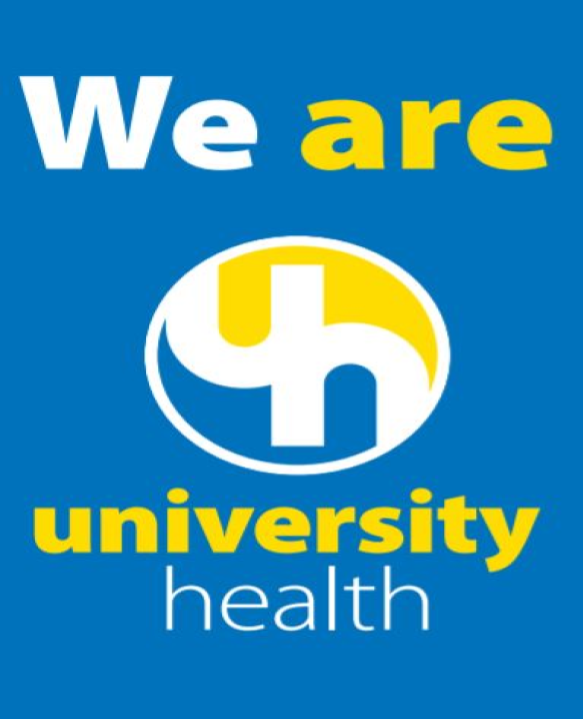Truman Medical Centers has rebranded as “University Health,” formally bringing its relationship with academia to the forefront of its image.
The Hospital Hill location on 23rd and Holmes will now be known as University Health Truman Medical Center, and their eastern Jackson County location will be known as University Health Lakewood.
This rebranding as a teaching hospital has been on the horizon for 50 years, ever since Truman Medical Center opened to the public.
“When we opened our doors in 1971, the new Truman Medical Center and the UMKC School of Medicine were built simultaneously and are contiguous to each other to connect students, staff and faculty directly,” said School of Medicine Dean Mary Anne Jackson.
For decades, University Health has partnered with UMKC and its schools of pharmacy, dentistry, nursing and medicine. This partnership between academia and KC’s largest public health institution has continued to grow and produce well-trained medical professionals for both local and national practices.
UMKC’s influence on the operations and efficiency of University Health can be easily seen, as more than 600 UMKC students work in staff rotations throughout the year.
Treating approximately 62,000 patients annually regardless of insurance or income, University Health is a Level 1 trauma center that provides an exceptional experience for future health care leaders.
“There were only a couple residencies when we first opened our doors back then,” Jackson said. “Now there are more than 40 such residencies and fellowship programs.”
Jackson also said that University Health is a location where 500 medical school graduates from around the country are currently training.
As a requirement in the medical school program, students must complete 12 eight-hour shifts and an additional six-hour block in nursing. Students get to work with seasoned physicians and specialists on a myriad of procedures they could potentially see once they complete their degree program.
Having access to an academic medical center built on the foundations of patient care and public health education gives UMKC medical students the resources to be successful in their disciplines in the metro and beyond.
“Despite being nervous and apprehensive about making mistakes, UMKC medical students come in humble, teachable and ready to learn,” said UH/TMC trauma surgical technician Tuesday Muldrow.
With continued investment in higher education and health care programs for both institutions, University Health continues to grow and improve in the health care services and resources they provide for the greater Kansas City metro area.
lbmcc@umsystem.edu








